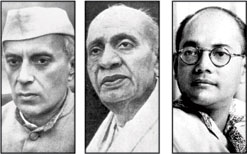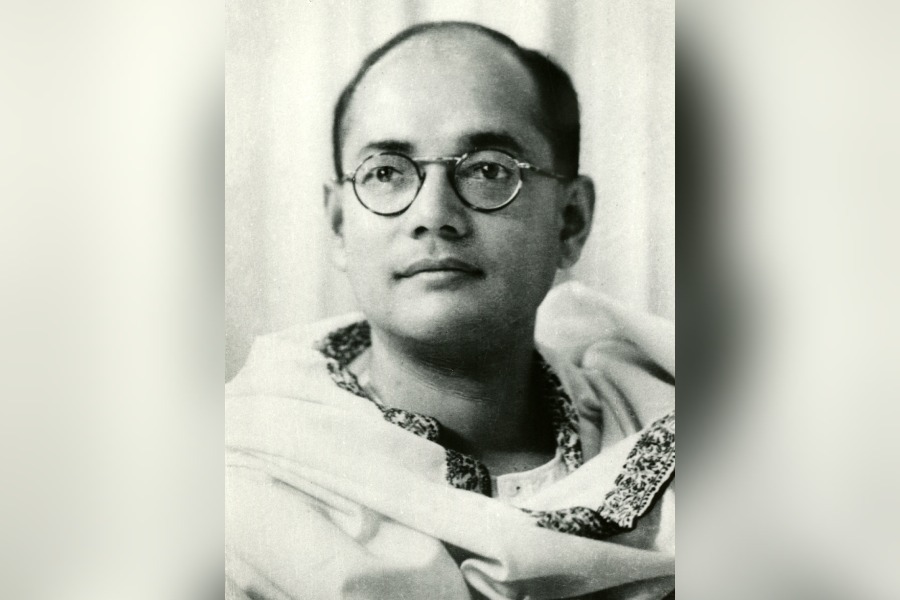Bhopal, Aug. 23: Generations of English students have been taught how a comma killed a man when a judicial diktat to "hang him don't, let him live" became "hang him, don't let him live".
Yesterday, a full stop - or the absence of it - "hanged" Jawaharlal Nehru, Sardar Vallabhbhai Patel and Netaji Subhas Chandra Bose in what would have been history's most sweeping chain of capital punishment.

Eventually, a ministerial clarification restored the period and put history back on track. More important, it demonstrated the power of the punctuation mark in the age of digital shearing that treats such rules as occupational hazards.
The grammar lesson was delivered by Prakash Javadekar, who heads the human resource development ministry, after he spoke extempore at Chhindwara in Madhya Pradesh yesterday. He was paying a tribute to freedom fighters as part of the Tiranga Yatra launched by the Narendra Modi government.
In a video clip released by several news channels, Javadekar was heard saying: "Subhas Chandra Bose, Sardar Patel, Pandit Nehru, Bhagat Singh, Rajguru sabhi phaansi par chadhe. (Bose, Sardar Patel, Pandit Nehru, Bhagat Singh, Rajguru all were hanged.)"
After questions on Javadekar's knowledge of modern history popped up on social media today, the minister issued a clarification on Twitter, blaming the confusion on punctuation.
"I am amused with the news. I paid my respect to all the freedom fighters since 1857. I mentioned leaders like Gandhi, Nehru, Subhas. It was a full stop. In the next sentence, I recounted those who were hanged, jailed and suffered at the hands of the British. There was no confusion in the minds of those who listened. I hope this removes all confusion," Javadekar tweeted.
Nehru had died of illness after serving for 17 years as the first Prime Minister of free India. The issue of Netaji's fate is far from settled. Patel died at the age of 75 in 1950.
In Madhya Pradesh's political circles, there was near-unanimity that Javadekar, a graduate from the University of Pune, was unlikely to make an error of such magnitude.
Javadekar is a stickler for rules, which was in evidence when he took care to wear a helmet while pillion-riding a two-wheeler during the Tiranga Yatra, unlike several of his central colleagues whose helmet-less rides drew ridicule.
As for the probably apocryphal account of how once a comma killed a man, several versions abound.
One recounts the story of a commander who issued an order about a prisoner: "Kill him don't, wait for me." In the telegraphed draft, the comma was transposed and the order read: "Kill him, don't wait for me."
Another speaks of the transposition in the judicial order for clemency that sent a man to the gallows.
Punctuation heresy has happy endings, too. Such as the one in which a czarina changed the czar's command from "pardon impossible, to be sent to Siberia" to "pardon, impossible to be sent to Siberia" and saved a man.
Why on earth did czars and judges phrase their sentences in such a manner? Ask the panda in Eats, Shoots & Leaves, who eats a sandwich, draws a gun and shoots the other patrons in a café because that's how a badly punctuated wildlife manual describes the lovable bear's life.










